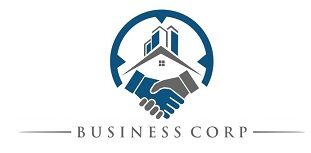What is commercial financing? How does it work?
Commercial financing is a financial tool used by businesses to fund their operations, investments, and expansion.
It is a type of financing that is designed to help companies obtain the funds they need to meet their business goals.
In this article, we will discuss what commercial financing is, how it works, and the different types of commercial financing available.

What is commercial financing?
Commercial financing is a type of financing that is used by businesses to obtain the funds they need to operate their business.
It is a way for businesses to obtain money that they can use to purchase inventory, pay for expenses, or make investments.
Commercial financing is generally used by businesses that are looking to grow their operations or to make strategic investments that will help them achieve their long-term goals.
How does commercial financing work?
Commercial financing works by providing businesses with access to the funds they need to operate.
This is done through a variety of different financial products and services, including commercial loans, lines of credit, and factoring.
Loans are a common form of commercial financing. They require the borrower to pay back the principal amount of the loan, plus interest, over a set period of time.
Loans can be secured or unsecured, and they can be used to finance a wide range of business expenses, including equipment purchases, inventory, or real estate.
Commercial financing works by providing businesses with access to the funds they need to operate. This is done through a variety of different financial products and services, including loans, lines of credit, and factoring.
Loans
Loans are one of the most common forms of commercial financing. They are a type of debt financing that requires the borrower to pay back the principal amount of the loan, plus interest, over a set period of time.
Loans can be secured or unsecured, and they can be used to finance a wide range of business expenses, including equipment purchases, inventory, or real estate.
Lines of Credit
A line of credit is another type of commercial financing that is often used by businesses. A line of credit is a revolving credit facility that allows a business to access funds as they are needed.
This means that the borrower can draw down funds from the line of credit as they need them, up to a certain limit.
Interest is only charged on the amount of funds that is drawn down, and the borrower can repay the funds at any time.
Factoring
Factoring is a type of commercial financing that is used to provide businesses with access to cash flow.
Factoring involves selling the accounts receivable of a business to a third-party financial institution, known as a factor.
The factor provides the business with an advance on the value of their accounts receivable, typically between 70% and 90%.
The factor then collects payment from the customers of the business when the accounts receivable come due.
Types of Commercial Financing
Commercial financing is an essential part of any business. It provides the necessary funds for a company to start, grow, and expand its operations.
There are several types of commercial financing available to businesses, each with its own advantages and disadvantages. In this article, we will explore the different types of commercial financing.
1. Bank Loans
Bank loans are a popular type of commercial financing. Banks offer both secured and unsecured loans to businesses.
Secured loans require the borrower to provide collateral, such as property, equipment, or inventory.
Unsecured loans, on the other hand, do not require collateral but often have higher interest rates.
2. Equipment Financing
Equipment financing is a type of financing that is used to purchase equipment. This type of financing is ideal for businesses that need to purchase expensive equipment, such as construction equipment or manufacturing machinery. The loan is secured by the equipment itself, so there is no need for additional collateral.
3. Invoice Financing
Invoice financing is a type of financing that allows businesses to borrow money against their outstanding invoices.
This type of financing is ideal for businesses that have a high volume of outstanding invoices but need cash flow to keep their operations running.
The lender advances a percentage of the value of the invoices, and the borrower repays the loan when the invoices are paid.
4. Merchant Cash Advance
A merchant cash advance is a type of financing that is ideal for businesses that have a high volume of credit card transactions. \The lender provides an advance based on the business’s future credit card sales. The loan is repaid through a percentage of the business’s daily credit card transactions.
5. Small Business Administration (SBA) Loans
SBA loans are a type of financing that is backed by the Small Business Administration.
These loans are designed to help small businesses that may not qualify for traditional bank loans. The SBA guarantees a portion of the loan, which reduces the risk for the lender.
6. Crowdfunding
Crowdfunding is a type of financing that involves raising money from a large number of people.
This type of financing is ideal for businesses that have a unique idea or product that may appeal to a large audience.
Crowdfunding can be done through online platforms such as Kickstarter or GoFundMe.
7. Venture Capital
Venture capital is a type of financing that is provided by investors who are looking for high-growth companies.
These investors provide funding in exchange for equity in the company. This type of financing is ideal for businesses that have a high potential for growth but may not have the cash flow to support their operations.
8. Traditional Bank Loans
Traditional bank loans are one of the most common forms of commercial financing. These loans are typically provided by banks and other financial institutions, and they require the borrower to meet strict credit requirements.
Traditional bank loans can be used to finance a wide range of business expenses, and they are often available at lower interest rates than other types of financing.
9. Alternative Lending Sources
Alternative lending sources are another option for businesses that are looking for commercial financing.
These lenders may offer loans with more flexible repayment terms or lower credit requirements than traditional bank loans.
Alternative lenders may also offer different types of financing products, such as invoice factoring or merchant cash advances.
10. Government-Backed Financing Programs
Government-backed financing programs are another option for businesses that are looking for commercial financing.
These programs are designed to help small businesses obtain the funds they need to operate and grow their business.
Examples of government-backed financing programs include the Small Business Administration (SBA) loan program and the U.S. Department of Agriculture (USDA) Business and Industry loan program.
Benefits of Commercial Financing
Commercial financing is a valuable tool that businesses of all sizes can use to grow and thrive. Whether you are a startup or an established business, there are numerous benefits to obtaining commercial financing. We will explore some of the advantages of commercial financing.
1. Access to Capital
One of the most significant benefits of commercial financing is that it provides businesses with access to capital.
Many businesses require significant amounts of money to purchase equipment, hire employees, or expand their operations. With commercial financing, businesses can obtain the funds they need to make these investments.
2. Flexible Terms
Commercial financing can be tailored to meet the specific needs of each business. Lenders offer a variety of financing options, including lines of credit, term loans, and asset-based lending.
This flexibility allows businesses to choose the financing option that best fits their unique circumstances.
3. Improved Cash Flow
Commercial financing can help businesses improve their cash flow by providing them with the funds they need to cover expenses and invest in growth opportunities.
With improved cash flow, businesses can better manage their day-to-day operations and take advantage of new opportunities as they arise.
4. Tax Benefits
Many commercial financing options offer tax benefits to businesses. For example, interest paid on a business loan is often tax-deductible.
This can help businesses reduce their overall tax burden, which can free up additional funds for growth and investment.
5. Improved Credit
Obtaining commercial financing and making timely payments can help businesses improve their credit score.
A strong credit score is essential for businesses that want to obtain additional financing in the future.
With improved credit, businesses can access more favorable financing terms and rates.
6. Increased Flexibility
Commercial financing can provide businesses with increased flexibility to respond to changes in the market.
For example, a business that obtains a line of credit can use the funds to respond to unexpected expenses or take advantage of new opportunities.
This flexibility can help businesses stay competitive in a rapidly changing business environment.
7. Helps Manage Risk
Commercial financing can help businesses manage risk. By obtaining financing, businesses can spread their risk over a longer period of time, rather than relying solely on their cash reserves.
This can help businesses avoid financial losses due to unexpected events, such as a market downturn or a natural disaster.
8. Facilitates Investment in Technology
Technology is rapidly changing the business landscape, and businesses that do not keep up with these changes risk falling behind their competitors. Commercial financing can help businesses invest in technology and stay ahead of the curve.
With the right technology in place, businesses can increase efficiency, reduce costs, and improve customer service.
9. Increases Business Value
Commercial financing can increase the value of a business. By obtaining financing, businesses can invest in assets that increase the value of the company, such as new equipment, real estate, or intellectual property.
This can make the business more attractive to potential investors or buyers, increasing its overall value.
10. Builds Relationships with Lenders
Commercial financing can help businesses build relationships with lenders. By obtaining financing and making timely payments, businesses can establish a track record of financial responsibility.
This can make it easier for businesses to obtain additional financing in the future, and can also lead to other opportunities, such as introductions to potential investors or partners.
11. Provides a Competitive Advantage
Finally, commercial financing can provide businesses with a competitive advantage. With access to capital, businesses can invest in marketing, product development, or other areas that can help them stand out from their competitors. This can lead to increased market share, higher profits, and long-term success.
Conclusion
Commercial financing is an essential tool for businesses that are looking to grow and expand their operations.
There are many different types of commercial financing available, including loans, lines of credit, and factoring, and each has its own set of benefits and drawbacks. Businesses should carefully consider their financing options and choose the type of financing that best suits their needs.
With the right business financing in place, businesses can achieve their goals and succeed in the competitive world of business ranging from increased access to capital and improved cash flow to tax benefits and a competitive advantage.
Whether you are a startup or an established business, commercial financing can help you achieve your goals and grow your business.
